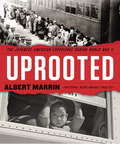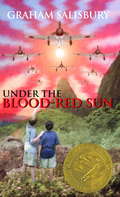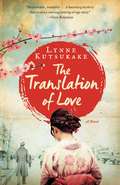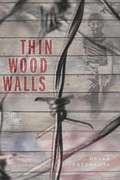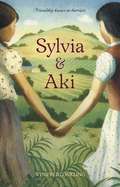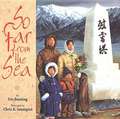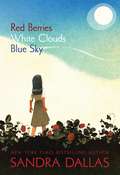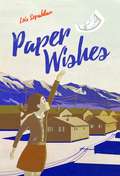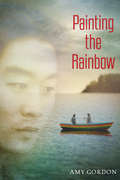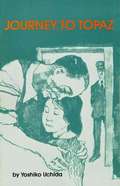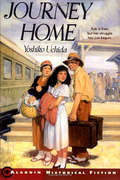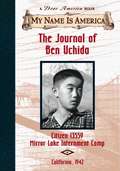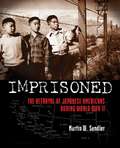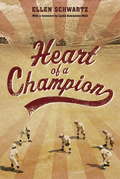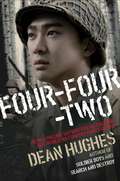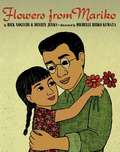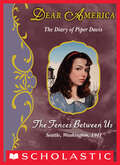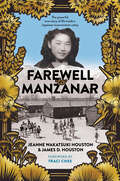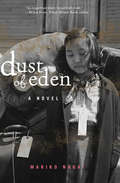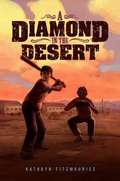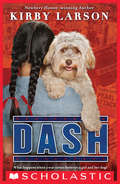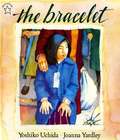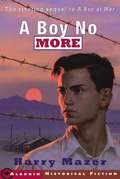Special Collections
Japanese Internment Camps
Description: After Pearl Harbor, President Roosevelt forced Japanese-Americans to leave their homes, schools, and businesses for isolated internment camps. This collection of children and y.a. books explain this dark chapter of American history. #teachers
- Table View
- List View
Weedflower
by Cynthia KadohataTwelve-year-old Sumiko feels her life has been made up of two parts: before Pearl Harbor and after it. The good part and the bad part. Raised on a flower farm in California, Sumiko is used to being the only Japanese girl in her class. Even when the other kids tease her, she always has had her flowers and family to go home to. That all changes after the horrific events of Pearl Harbor. Other Americans start to suspect that all Japanese people are spies for the emperor, even if, like Sumiko, they were born in the United States! As suspicions grow, Sumiko and her family find themselves being shipped to an internment camp in one of the hottest deserts in the United States. The vivid color of her previous life is gone forever, and now dust storms regularly choke the sky and seep into every crack of the military barrack that is her new "home." Sumiko soon discovers that the camp is on an Indian reservation and that the Japanese are as unwanted there as they'd been at home. But then she meets a young Mohave boy who might just become her first real friend...if he can ever stop being angry about the fact that the internment camp is on his tribe's land. With searing insight and clarity, Newbery Medal-winning author Cynthia Kadohata explores an important and painful topic through the eyes of a young girl who yearns to belong. Weedflower is the story of the rewards and challenges of a friendship across the racial divide, as well as the based-on-real-life story of how the meeting of Japanese Americans and Native Americans changed the future of both.
Uprooted
by Albert MarrinOn the 75th anniversary of the bombing of Pearl Harbor comes a harrowing and enlightening look at the internment of Japanese Americans during World War II— from National Book Award finalist Albert Marrin.
Just seventy-five years ago, the American government did something that most would consider unthinkable today: it rounded up over 100,000 of its own citizens based on nothing more than their ancestry and, suspicious of their loyalty, kept them in concentration camps for the better part of four years.
How could this have happened? Uprooted takes a close look at the history of racism in America and carefully follows the treacherous path that led one of our nation’s most beloved presidents to make this decision. Meanwhile, it also illuminates the history of Japan and its own struggles with racism and xenophobia, which led to the bombing of Pearl Harbor, ultimately tying the two countries together.
Today, America is still filled with racial tension, and personal liberty in wartime is as relevant a topic as ever. Moving and impactful, National Book Award finalist Albert Marrin’s sobering exploration of this monumental injustice shines as bright a light on current events as it does on the past.
Under the Blood-Red Sun
by Graham SalisburyTomi was born in Hawaii. His grandfather and parents were born in Japan, and came to America to escape poverty.
World War II seems far away from Tomi and his friends, who are too busy playing ball on their eighth-grade team, the Rats.
But then Pearl Harbor is attacked by the Japanese, and the United States declares war on Japan.
Japanese men are rounded up, and Tomi's father and grandfather are arrested. It's a terrifying time to be Japanese in America. But one thing doesn't change: the loyalty of Tomi's buddies, the Rats.
Winner of the Scott O'Dell Award for Historical Fiction
The Translation of Love
by Lynne KutsukakeAn emotionally gripping portrait of postwar Japan, where a newly repatriated girl must help a classmate find her missing sisterAfter spending the war years in a Canadian internment camp, thirteen-year-old Aya Shimamura and her father are faced with a gut-wrenching choice: move east of the Rocky Mountains or go "back" to Japan. Barred from returning home to the West Coast and bitterly grieving the loss of Aya's mother during internment, Aya's father signs a form that enables the government to deport them. But war-devastated Tokyo is not much better. Aya's father struggles to find work, compromising his morals and toiling long hours. Meanwhile, Aya, born and raised in Vancouver, is something of a pariah at her school, bullied for being foreign and paralyzed when asked to communicate in Japanese. Aya's alienation is eventually mitigated by one of her principal tormenters, a willful girl named Fumi Tanaka, whose older sister has mysteriously disappeared. When a rumor surfaces that General MacArthur, who is overseeing the Occupation, might help citizens in need, Fumi enlists Aya to compose a letter asking him to find her beloved sister. The letter is delivered into the reluctant hands of Corporal Matt Matsumoto, a Japanese American serving with the Occupation forces, whose endless job is translating the thousands of letters MacArthur receives each week. Although Matt feels an affinity with Fumi, he is largely powerless, and the girls decide to take matters into their own hands, venturing into the dark and dangerous underside of Tokyo's Ginza district. Told through rich, interlocking story lines, The Translation of Love mines this turbulent period to show how war irrevocably shapes the lives of people on both sides--and yet the novel also allows for a poignant spark of resilience, friendship, and love that translates across cultures and borders to stunning effect.From the Hardcover edition.
Thin Wood Walls
by David PatneaudeEleven-year-old Joe Hanada likes playing basketball with his best friend, Ray, writing plays and stories, and thinking about the upcoming Christmas holiday. But his world falls apart when Japanese planes bomb Pearl Harbor. His country goes to war. The FBI takes his father away. And neighbors and friends in his hometown near Seattle begin to suspect Joe, his family, and all Japanese Americans of spying for the enemy. When the government orders people of Japanese heritage living on the West Coast to move to internment camps, including Joe and his family, Joe turns to the journal his father gave him to record his thoughts and feelings.
Sylvia and Aki
by Winifred ConklingAt the start of World War II, Japanese American third-grader Aki and her family are sent to an internment camp in Poston, Arizona, while Mexican American third-grader Sylvia's family leases their Orange County, California, farm and begins a fight to stop school segregation.
So Far from the Sea
by Eve Bunting and Chris K. SoentpietLaura Iwasaki and her family are paying what may be their last visit to Laura's grandfather's grave. The grave is at Manzanar, where thousands of Americans of Japanese heritage were interned during World War II. Among those rounded up and taken to the internment camp were Laura's father, then a small boy, and his parents. Now Laura says goodbye to Grandfather in her own special way, with a gesture that crosses generational lines and bears witness to the patriotism that survived a shameful episode in America's history. Eve Bunting's poignant text and Chris K. Soentpiet's detailed, evocative paintings make the story of this family's visit to Manzanar, and of the memories stirred by the experience, one that will linger in readers' minds and hearts. Afterword.
Red Berries, White Clouds, Blue Sky
by Sandra DallasIt's 1942: Tomi Itano, 12, is a second-generation Japanese American who lives in California with her family on their strawberry farm. Although her parents came from Japan and her grandparents still live there, Tomi considers herself an American. She doesn't speak Japanese and has never been to Japan. But after the Japanese attack on Pearl Harbor, things change. No Japs Allowed signs hang in store windows and Tomi's family is ostracized. Things get much worse. Suspected as a spy, Tomi's father is taken away. The rest of the Itano family is sent to an internment camp in Colorado. Many other Japanese American families face a similar fate. Tomi becomes bitter, wondering how her country could treat her and her family like the enemy. What does she need to do to prove she is an honorable American? Sandra Dallas shines a light on a dark period of American history in this story of a young Japanese American girl caught up in the prejudices and World War II.
Paper Wishes
by Lois SepahbanTen-year-old Manami did not realize how peaceful her family's life on Bainbridge Island was until the day it all changed. It's 1942, after the attack on Pearl Harbor, and Manami and her family are Japanese American, which means that the government says they must leave their home by the sea and join other Japanese Americans at a prison camp in the desert.
Manami is sad to go, but even worse is that they are going to have to give her and her grandfather's dog, Yujiin, to a neighbor to take care of. Manami decides to sneak Yujiin under her coat and gets as far as the mainland before she is caught and forced to abandon Yujiin.
She and her grandfather are devastated, but Manami clings to the hope that somehow Yujiin will find his way to the camp and make her family whole again. It isn't until she finds a way to let go of her guilt that Manami can reclaim the piece of herself that she left behind and accept all that has happened to her family.
Paper Wishes by Lois Sepahban is a heartrending middle-grade novel and piece of historical fiction set during World War II about love, longing, and a girl who finally finds her voice.
"It’s a novel that stays, bravely, in that place of pain, making clear that scars will be left behind not only for the children whose families were incarcerated, but also for the generations that follow. And yet, although the tone is sober and sad, it’s also a novel in which a mute child finds her voice, at last." —The New York Times
Painting the Rainbow
by Amy GordonThirteen-year-old Holly and her cousin Ivy have always been close; but this summer, 1965, at the annual month-long reunion at their grandparents' lake house, the girls seem to be growing apart. Although they spend hours together painting an old rowboat the colors of the rainbow, they don't talk about things that are important . . . until they accidentally discover hidden family letters and drawings dating back to World War II. Uncovering the mystery of a ghost-like boy named Kiyo leads the girls to the many subjects no Greenwood adult will discuss, such as their uncle Jesse and his death during the war. In this insightful and expressive novel about complicated family dynamics, two girls show their elders that with honesty, courage, and empathy even old wounds can be healed.
Journey to Topaz
by Yoshiko UchidaAfter the bombing of Pearl Harbor, 11-year-old Yuki Sakane's family is uprooted and shipped with thousands of other West Coast Japanese-Americans to the horse stalls of Tanforan Racetrack and then to a bleak desert concentration camp called Topaz.
Journey Home
by Yoshiko UchidaYuki, a 12-year-old Japanese American girl, and her family were sent to a concentration camp in Utah. This is the story of their journey back to Berkeley, California after WWII is over.
The Journal of Ben Uchida
by Barry DenenbergFor almost 11 months in the internment camp, 12-year-old Ben Uchida keeps a journal and he writes, "It never seemed to matter before, but now my face was the face of the enemy".
Imprisoned
by Martin W. SandlerWhile Americans fought for freedom and democracy abroad, fear and suspicion towards Japanese Americans swept the country after Japan's sneak attack on Pearl Harbor. The author presents an in-depth account of the Japanese Americans' lives before, during their imprisonment, and after their release.
Heart of a Champion
by Ellen SchwartzTen-year-old Kenny (Kenji in Japanese) worships his older brother, Mickey (Mitsuo), a baseball hero whose outstanding performance on the Asahi baseball team has given him fame and popularity. Despite Kenny's suspected heart condition, he is determined to practice secretly with Mickey so he, too, can one day try out for the Asahi. But world events soon overtake life in this quiet community. When Japan attacks Pearl Harbor in 1941, everything for Kenny and his family spirals out of control: schools are closed, businesses are confiscated, fathers are arrested and sent to work camps in the BC interior and mothers and children are relocated to internment camps. When Mickey is arrested for a small act of violence, Kenny manages to keep his family's spirits up, despite the deplorable conditions in camp. Coming across a "vacant" field covered with scrap wood, broken shakes and torn tar paper, Kenny gets permission to clear it and convert it into a baseball field. One by one, the boys in the camp pitch in, and the work gives purpose to their long days. Kenny's persistence, hard work and big dreams shape the teen he is to become in this story of happiness found despite all odds.
Four-Four-Two
by Dean HughesFrom the author of Soldier Boys and Search and Destroy comes a thought-provoking, action-packed page-turner based on the little-known history of the Japanese Americans who fought with the 442nd Regimental Combat Team during World War II.
Yuki Nakahara is an American. But it's the start of World War II, and America doesn't see it that way. Like many other Japanese Americans, Yuki and his family have been forced into an internment camp in the Utah desert.
But Yuki isn't willing to sit back and accept this injustice--it's his country too, and he's going to prove it by enlisting in the army to fight for the Allies. When Yuki and his friend Shig ship out, they aren't prepared for the experiences they'll encounter as members of the "Four-Four-Two," a segregated regiment made up entirely of Japanese-American soldiers.
Before Yuki returns home--if he returns home--he'll come face to face with persistent prejudices, grueling combat he never imagined, and friendships deeper than he knew possible.
Flowers from Mariko
by Rick Noguchi and Deneen JenksMariko's family has been freed from a Japanese-American internment camp, but the transition hasn't been easy. "Flowers from Mariko" tells of a family striving to reestablish their lives--through hope, perseverance, and love.
The Fences Between Us
by Kirby LarsonNewbery Honor author Kirby Larson brings us the first new Dear America diary in years, taking readers through the attack on Pearl Harbor, the start of World War II, and the Japanese incarceration.
With this sweeping tale of life on the World War II homefront, Newbery Honor author Kirby Larson brings her incredible talent to the Dear America series. When Pearl Harbor is attacked, America is finally unable to ignore the wars raging in Europe and Asia any longer. And one girl's entire life is about to change when everything she knows is turned on its head. After the devastating attack on Pearl Harbor, where her brother, a navy sailor, is stationed, Piper Davis begins chronicling her compelling journey through one of history's most tragic and unforgettable eras.
Farewell to Manzanar
by Jeanne Wakatsuki Houston and James D. HoustonThe powerful true story of life in a Japanese American internment camp.During World War II the community called Manzanar was hastily created in the high mountain desert country of California, east of the Sierras. Its purpose was to house thousands of Japanese American internees.One of the first families to arrive was the Wakatsukis, who were ordered to leave their fishing business in Long Beach and take with them only the belongings they could carry. For Jeanne Wakatsuki, a seven-year-old child, Manzanar became a way of life in which she struggled and adapted, observed and grew. For her father it was essentially the end of his life.In Farewell to Manzanar, Jeanne Wakatsuki Houston recalls life at Manzanar through the eyes of the child she was. She tells of her fear, confusion, and bewilderment as well as the dignity and great resourcefulness of people in oppressive and demeaning circumstances. Jeanne delivers a powerful first-person account that reveals her search for the meaning of Manzanar.Farewell to Manzanar has become a staple of curriculum in schools and on campuses across the country. Named one of the twentieth century’s 100 best nonfiction books from west of the Rockies by the San Francisco Chronicle.
Dust of Eden
by Mariko NagaiWe lived under a sky so blue in Idaho right near the towns of Hunt and Eden but we were not welcomed there.
In early 1942, thirteen-year-old Mina Masako Tagawa and her Japanese American family are sent from their home in Seattle to an internment camp in Idaho. What do you do when your home country treats you like an enemy?
This memorable and powerful novel in verse, written by award-winning author Mariko Nagai, explores the nature of fear, the value of acceptance, and the beauty of life. As thought-provoking as it is uplifting, Dust of Eden is told with an honesty that is both heart-wrenching and inspirational.
A Diamond in the Desert
by Kathryn FitzmauriceTwelve-year-old Tetsu eats, sleeps and breathes baseball. It’s all he ever thinks about. But after the bombing of Pearl Harbor, Tetsu and his family are forced from their home into an internment camp in the Arizona desert with other Japanese Americans, and baseball becomes the last thing on his mind. The camp isn’t technically a prison, but it sure feels like one when there’s nothing to do and no place to go.
So when a man starts up a boys’ baseball team, Tetsu is only too eager to play again. But with his sister suddenly falling ill, and his father taken away for questioning, Tetsu is forced to choose between his family and his love of the game.
Dash
by Kirby LarsonNew from Newbery Honor author Kirby Larson, the moving story of a Japanese-American girl who is separated from her dog upon being sent to an incarceration camp during WWII.Although Mitsi Kashino and her family are swept up in the wave of anti-Japanese sentiment following the attack on Pearl Harbor, Mitsi never expects to lose her home -- or her beloved dog, Dash. But, as World War II rages and people of Japanese descent are forced into incarceration camps, Mitsi is separated from Dash, her classmates, and life as she knows it. The camp is a crowded and unfamiliar place, whose dusty floors, seemingly endless lines, and barbed wire fences begin to unravel the strong Kashino family ties. With the help of a friendly neighbor back home, Mitsi remains connected to Dash in spite of the hard times, holding on to the hope that the war will end soon and life will return to normal. Though they've lost their home, will the Kashino family also lose their sense of family? And will Mitsi and Dash ever be reunited?
The Bracelet
by Yoshiko UchidaEmi, a Japanese-American in the second grade, is sent with her family to an internment camp during World War II, but the loss of the bracelet her best friend has given her proves that she does not need a physical reminder of that friendship.
A Boy No More
by Harry Mazer"WHAT ABOUT WHAT THEY DID TO MY FATHER?...
THE JAPS KILLED HIM!"
Adam Pelko witnessed something horrible: the sinking of the USS Arizona during the attack on Pearl Harbor -- with his father aboard. Since then, Adam and his mother and sister have moved to California, where they are trying to rebuild their lives.
But no matter where Adam goes, he can't get away from the effects of the war. His best friend, Davi, has asked for help. Davi is Japanese American, and his father has been arrested, taken to Manzanar, a Japanese internment camp.
Adam isn't sure what to do. If he goes to Manzanar and starts asking questions, he could be risking his own life. But can he simply do nothing and risk losing Davi's friendship forever? Are Davi, his father, and all the other Japanese Americans taken from their homes responsible for what happened at Pearl Harbor?
In this riveting follow-up to his acclaimed book A Boy at War, Harry Mazer explores questions of friendship and loyalty against the backdrop of World War II, a time when boys had to grow up fast.
Baseball Saved Us
by Ken MochizukiA Japanese American boy learns to play baseball when he and his family are forced to live in an internment camp during World War II, and his ability to play helps him after the war is over.

